Britain’s back-to-Brexit election
Britain is going into the most acrimonious and critical election for decades.
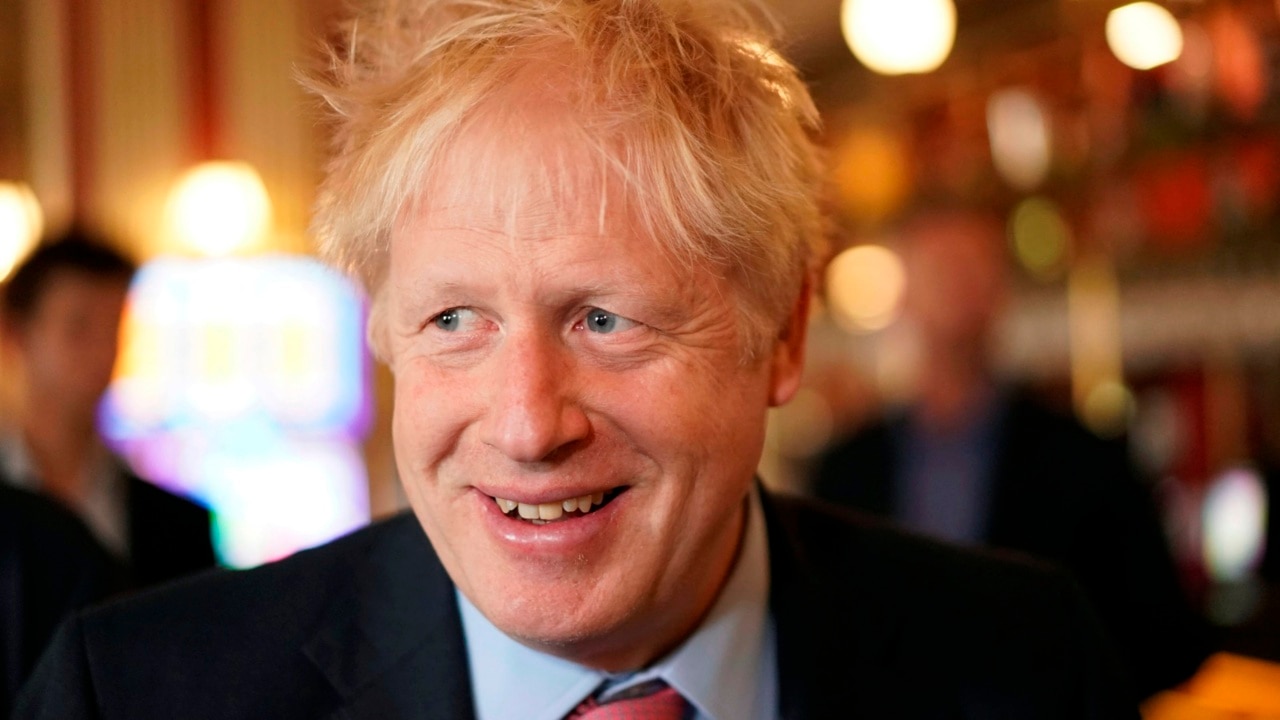
Boris Johnson has finally succeeded — on his fourth attempt — at calling a general election. He goes into the most acrimonious, and critical, poll for decades well ahead of Jeremy Corbyn’s Labour but there is every chance his gamble will see his government fall.
At stake is Britain’s relationship with the European Union with the country polarised into Leave and Remain voters.
Not only will voters be choosing between two main parties that have arguably never had more contrasting visions for their country’s future but the old two party system is now more of a four party configuration with the staunchly pro-Remain Liberal Democrats and the strictly Leave Brexit Party, both having crucial impact on the vote.
What are the odds for each party and what are the key messages on which each will be campaigning?
Conservatives
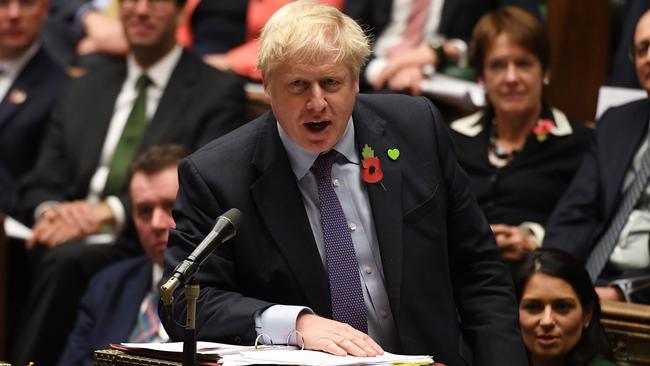
Odds to win (Betfair) 10/11
Position on Brexit: Prime Minister Boris Johnson will campaign on a platform of getting Brexit done as soon as possible. His approach has already shifted from the “do or die” rhetoric, and will focus on the “great Brexit deal” he has secured from the EU. He will campaign on a “people versus parliament” platform after MPs repeatedly frustrated his attempts to get his deal through the Commons.
We have a once-in-a-generation chance to rebuild and transform our country.
— The Labour Party (@UKLabour) October 29, 2019
It’s time for real change.
We’re ready. Are you with us? 🌹 #GeneralElection2019 pic.twitter.com/kF0K7St6fb
Non-Brexit policy issues: Johnson says he wants to “get Brexit done” so he can move on to the Conservative Party’s domestic priorities: the health system, law and order, schools and the economy. The party has announced 20,000 extra police officers, a £7.1bn ($13.3bn) increase in school spending by 2022-23, and a hospital-building program.
READ MORE: Corbyn dismisses fears of poll rout | Will gamble pay off for Boris? | Britain heads for the polls | PM ‘pouring petrol on division’
Key questions: Johnson is relying on Brexit to pick up Labour Leave seats in the Midlands and the north. He also hopes his law-and-order agenda will cut through, but colleagues fear Remainers will punish the party. With the Lib Dems expected to gain in the southeast and southwest, and the SNP also anticipating success, up to 30 seats may be at risk.
Messages you can expect to hear on repeat: The Tory mantra will be “get Brexit done” so the country can “get back on the road to a brighter future”. Johnson has been sharpening his attack lines on Jeremy Corbyn. He said this week the Labour leader would turn 2020 into a year of “toxic, tedious torture” with “two more referendums” — one on Brexit and a second on Scottish independence.
Key figures to watch: Johnson will be front and centre of the campaign and has been visiting hospitals to highlight investment in the National Health Service. Home Secretary Priti Patel also has a leading role, reflecting the focus on law and order. Party chairman James Cleverly will be regularly deployed, along with Chancellor Sajid Javid and Rishi Sunak, chief secretary to the Treasury.
-
Labour
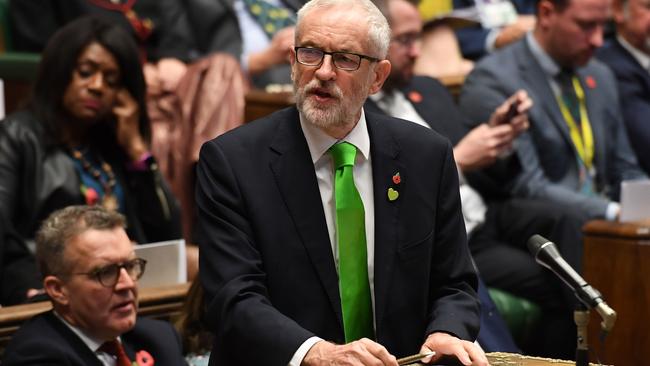
Odds to win (Betfair) 23/1
Position on Brexit: Labour will offer a second referendum, which it usually calls a “public vote”. The choice would be between a “sensible” Brexit deal, which the party believes it can negotiate within three months, and Remain. Several shadow cabinet ministers have committed to campaigning for Remain, although Corbyn is yet to set out his position.
We have a once-in-a-generation chance to rebuild and transform our country.
— The Labour Party (@UKLabour) October 29, 2019
It’s time for real change.
We’re ready. Are you with us? 🌹 #GeneralElection2019 pic.twitter.com/kF0K7St6fb
Non-Brexit policy issues: Labour will aim to shift the debate beyond Brexit. It will tell people to back “real change” as opposed to Johnson, who, it will argue, is merely reversing some of the cuts imposed by the Tories. Corbyn is most comfortable talking about Conservative austerity against Labour’s plans for investment, and that is where his focus will be.
Key questions: Corbyn’s biggest struggle will be keeping his party united on Brexit. John McDonnell, Sir Keir Starmer, Diane Abbott and others will campaign for Remain in a referendum whatever new deal a Labour government might negotiate. Strategists fear that being seen as too pro-EU will cost the party votes in Leave-voting Labour/Tory marginals.
Messages you can expect to hear on repeat: The success in 2017 of “For the many, not the few” will mean a return for the phrase and its themes. Labour has tried to cast the Conservatives as an elite and draw parallels between Johnson and US President Donald Trump. Indeed, “Trump-deal Brexit” has become a catchphrase, with claims that the NHS would be on the table in a US trade deal.
Key figures to watch: Corbyn is likely to hold large rallies, as he did successfully in 2017. Figures trusted on the airwaves will include John McDonnell, Sir Keir Starmer and Rebecca Long Bailey, the shadow business secretary. Expect deputy leader Tom Watson to feature less prominently after his rift with Corbyn and his allies.
-
Liberal Democrats
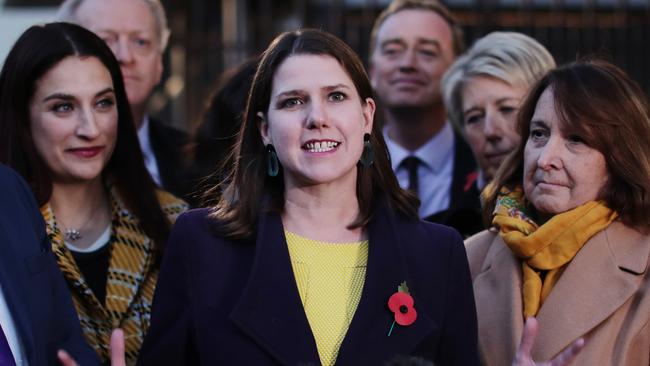
Odds to win (Betfair) 99/1
Position on Brexit: The Lib Dems will campaign relentlessly on Brexit. They made the decision last month to pledge that in the unlikely event they won a majority they would revoke Article 50, cancelling Brexit altogether. The party made this controversial move not because it expects an overall majority but because it wanted to flaunt its Remain credentials compared with Labour.
Non-Brexit policy issues: The Lib Dems have pledged to extend the right to vote in all elections and referendums to EU citizens and 16- and 17-year-olds. They want proportional representation to replace the first-past-the-post system, a 1p rise in income tax to fund the NHS, and a “legal right to clean air”. Every public spending decision will be assessed for its impact on wellbeing.
Key questions: Party leader Jo Swinson’s biggest challenge is likely to come in the event of a hung parliament. What will she do if the Lib Dems win a significant number of seats but fall short of an overall majority? She has said she would not put Corbyn or Johnson in Downing Street but has declined to say if she could put another Tory or Labour leader there as part of a coalition.
Messages you can expect to hear on repeat: The Lib Dems have already come up with an array of slogans, all centred on the party’s pledge to revoke Article 50. They include “fighting for an exit from Brexit” and “we demand better for Britain”. They will take a twin-track approach, arguing Johnson and the Tories “cannot be trusted” and that Corbyn has backed Brexit “time and time again”.
Key figures to watch: Swinson will lead the charge for the Lib Dems alongside an array of defectors — former Labour MPs Chuka Umunna and Luciana Berger and former Tories Sam Gyimah and Sarah Wollaston. All have played prominent roles in recent weeks. Former Liberal Democrat leader Sir Vince Cable is also expected to play a key role.
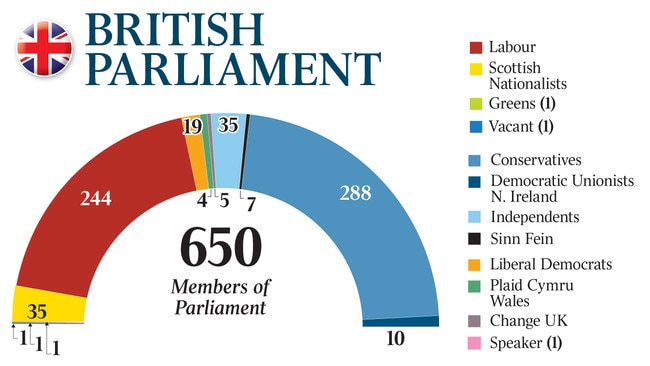
-
Scottish National Party
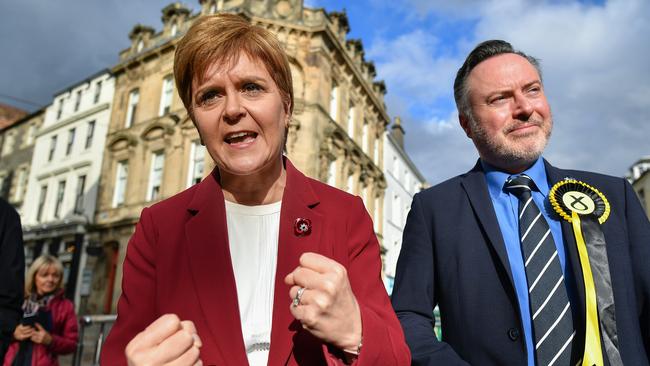
Position on Brexit: The SNP has embraced a second referendum and says it will campaign for Remain, arguing that the 2016 vote was “manipulated and undermined by misinformation and false promises”. The party has not gone as far as calling for the revocation of Article 50, although several senior figures within the party have voiced their support.
Non-Brexit policy issues: Scotland faces two constitutional battles in the election, with SNP leader Nicola Sturgeon having vowed to put a second Scottish independence referendum “at the heart” of her party’s campaign. The nationalists believe that returning a majority of Scottish MPs gives them a mandate for another vote but they need the permission of the PM.
Key questions: Will the renewed push for independence be a help or a hindrance? In 2015, with memories of the independence referendum still fresh, the party won 56 out of 59 seats. That fervour had abated by 2017 and the SNP lost 21 of those seats. The Tories are likely to lose seats this time around, but not necessarily to the nationalists.
Messages you can expect to hear on repeat: Independence 2020 is the cry from the SNP as it pushes for a second referendum next year. The overwhelming Remain vote north of the border will be central to claims of a democratic deficit with a bit of “Scotland doesn’t get the government it votes for” (it has done so in three out of the past 10 general elections) thrown in.
Key figures to watch: Sturgeon is not a candidate but will be at the forefront of the campaign. This will provide opponents with the chance to attack the SNP record in Holyrood. Ian Blackford and Kirsty Blackman, Westminster leader and deputy leader, will feature, as will Stephen Gethins, the party’s Europe spokesman, whose majority — two votes — is the tiniest in history.
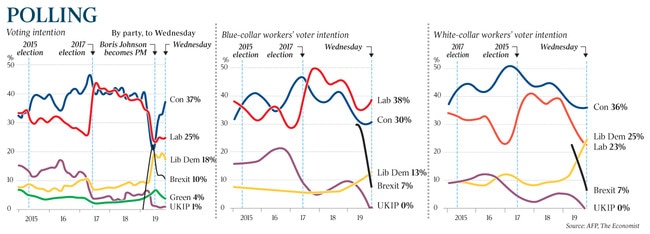
-
Brexit Party
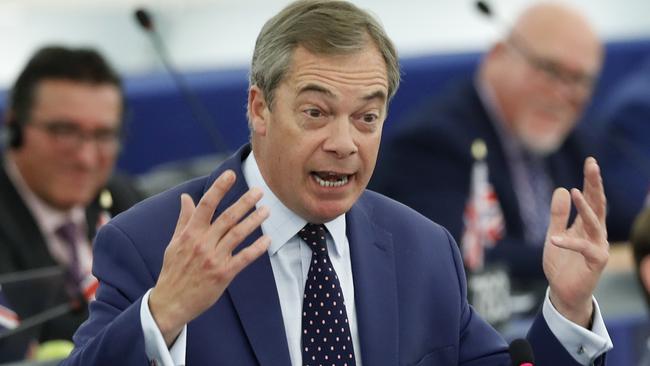
Odds to win (Betfair) 159/1
Position on Brexit: Nigel Farage’s party is campaigning for a “clean-break Brexit”. It says the Prime Minister’s deal is “far removed” from what Eurosceptics voted for in the 2016 referendum. Farage has argued that Britain should leave the EU on World Trade Organisation terms.
Non-Brexit policy issues: The Brexit Party will scrap inheritance tax and invest £200bn in “left-behind regions”, to be funded by redirecting half of Britain’s foreign aid budget and scrapping the HS2 high-speed railway. The party also wants free Wi-Fi on all public transport and a sales tax targeting tech giants.
Key questions: The biggest question for Farage is how many seats to fight. He has said he wants a crack at all of them but some in the party want to fight in 20. Pollsters think the Brext Party is Johnson’s greatest barrier to a majority.
Messages you can expect to hear on repeat: The Brexit Party will argue against Johnson’s deal, claiming it is “not a proper Brexit”. It wants a “clean-break Brexit” to build a “Leaver alliance” that can “make Brexit a reality”. It says “democracy is under threat” along with the “future of politics”.
Key figures to watch: The biggest name will be Farage, but former Tory minister Ann Widdecombe will also be deployed to appeal to Conservative voters. Businessman and party chairman Richard Tice will also feature prominently.
The Times


To join the conversation, please log in. Don't have an account? Register
Join the conversation, you are commenting as Logout